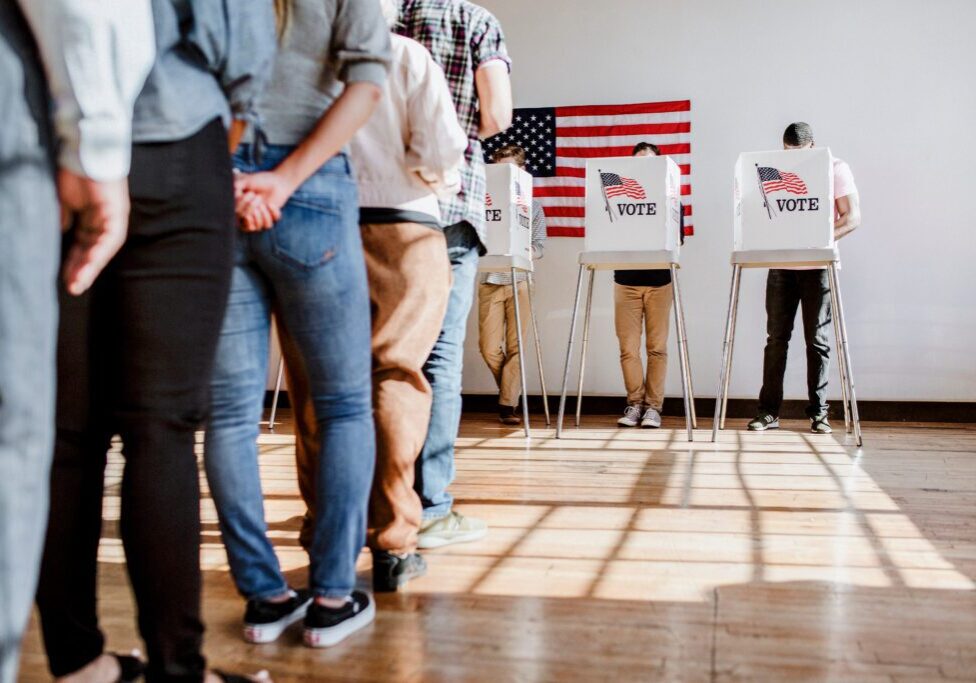Attorney General Jeff Landry was elected as the 57th governor of Louisiana on Saturday after capturing 52 percent of the statewide vote. The surprise victory in the primary election gives voters sooner-than-expected clarity on who will lead the state over the next four years. Voters also handed Republicans their first elected supermajority in the state Legislature in more than one hundred years. The Times-Picayune |Baton Rouge Advocate’s Tyler Bridges reports on the short and long-term goals of the new administration and Legislature.
During the campaign, Landry said he would call a special session to combat crime as his first order of business in January. … Fighting crime topped Landry’s campaign platform. During the expected special session, he will likely seek to roll back some of the changes to criminal justice laws approved in 2017 by a bipartisan group of legislators. … Landry and Republican lawmakers are also expected to push through measures that [Gov. John Bel] Edwards vetoed or opposed, including bills that sought to phase out the state franchise tax, limit the rights of LGBTQ+ people and allow people to carry concealed firearms without a permit or training.
Voters approve all constitutional amendments
State voters approved all four proposed amendments to Louisiana’s constitution on Saturday. These amendments impact whether election officials can accept donations from nonprofit organizations, whether in-person religious services receive an extra layer of constitutional protection, how the state should allocate surplus money, and whether cities should have the right to take away a lucrative property tax break from landlords that have serious code violations. The Times-Picayune |Baton Rouge Advocate’s Meghan Friedmann reports:
Rep. Blake Miguez, R-New Iberia, who authored Amendment 1, was in a triumphant mood Sunday after his proposal received 73% of the vote. … The only measure to fare better was Amendment 2. With approval from 79% of Louisiana voters, it adds language stating “the freedom of worship in a church or other place of worship is a fundamental right that is worthy of the highest order of protection.” … Meanwhile, Amendments 3 and 4 passed by smaller margins than their counterparts: Amendment 3, which increases payments to the state’s retirement funds, won approval from 56% of voters, and Amendment 4, which will allow officials to restrict tax exemptions to certain nonprofits, won approval from 66% of voters.
Note: Voters will see four more proposed amendments on their Nov. 18 general election ballots. LBP will provide a guide on those proposals in the coming weeks.
ITEP’s impact on schools
At the heart of Gov. John Bel Edwards’ 2016 reforms to Louisiana’s Industrial Tax Exemption Program (ITEP) were local governments’ ability to weigh in on whether or not to grant lucrative property tax breaks sought by manufacturers. But parish councils, school boards and sheriffs have rarely exercised this newfound power. The East Baton Rouge Parish School Board will hear – and is expected to approve – an ITEP request from ExxonMobil on Thursday that would cost local public schools $4 million in property tax revenue. The Times-Picayune |Baton Rouge Advocate’s Charles Lussier reports on school systems giving away much-needed tax revenue.
As a member of the state board of Commerce and Industry, [LBP executive director Jan] Moller voted for ExxonMobil’s ITEP requests for East and West Baton Rouge parishes. Moller said he is obliged in that position, to which he was appointed in 2016, to vote for requests that conform to state rules. Local elected officials, however, are not under the same constraints. Moller said he feels especially strongly when it comes to ITEP and schools. “If I was on a school board, which I’m not, I wouldn’t vote for a single one of these things, because your obligation as a school board member is to the children and the schools you oversee,” he said.
Note: Edwards’ reforms were done via executive order and can be undone by Gov.-elect Jeff Landry with a stroke of a pen.
Building a better school-to-career pipeline
Economic mobility in the United States is becoming increasingly difficult to achieve. While almost 90% of children born in the 1940s grew up to earn more than their parents, only 50% of children born in the 1980s did the same. New research from Brookings and Child Trend shows that more than half of adults who grew up in families with low income and education levels do not earn enough to live on. Brookings Metro’s Martha Ross explains how a better school-to-career pipeline can help.
As part of this work, state and local leaders will need to address how disconnected our K-12, postsecondary, and workforce development systems are—both from each other and the labor market. They have different incentives, rules, and governing structures, which makes it difficult to provide a smooth continuum of support from education to careers. Reforms are necessary not only at the program and institutional level, but at the policy level; we must reconfigure how education and labor market institutions partner with employers and job seekers to create a more functional, less fragmented system that is also more transparent for people to navigate.
Number of the Day
280,000- Approximate number of fewer ballots that were cast in Saturday’s primary election than in 2019. (Source: Louisiana Secretary of State via The Times-Picayune |The Advocate)
